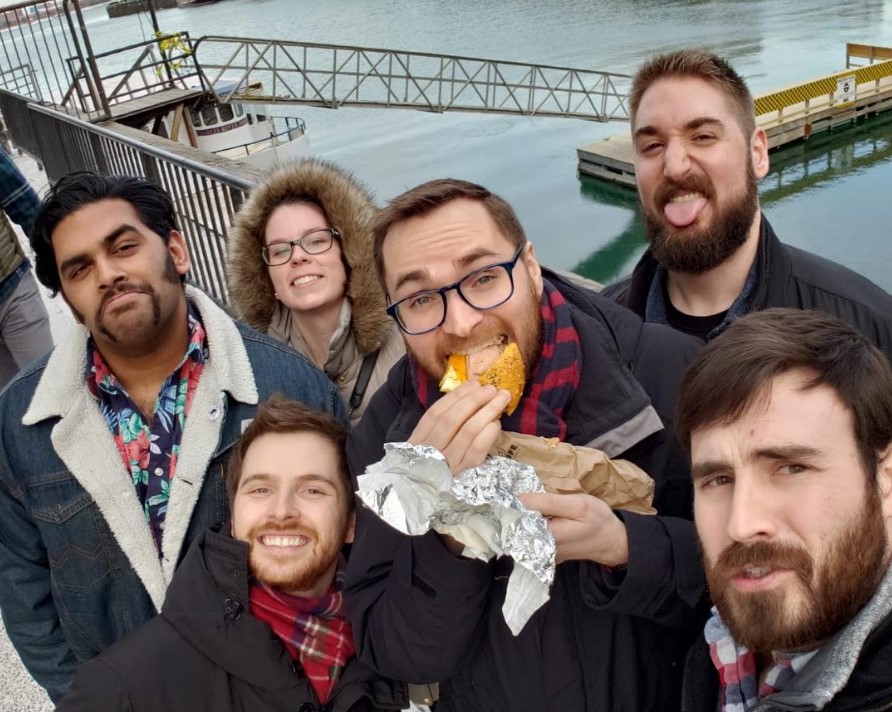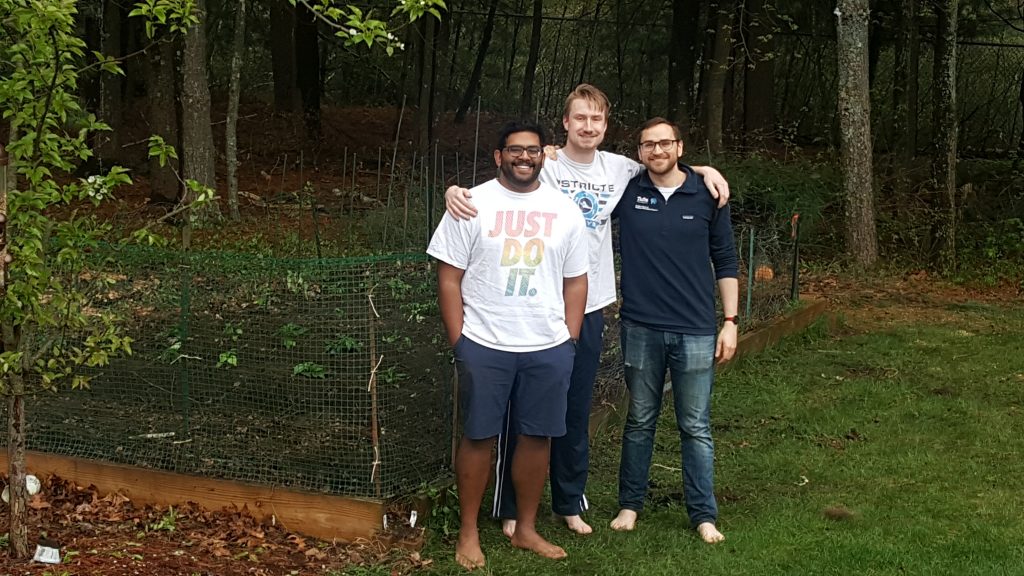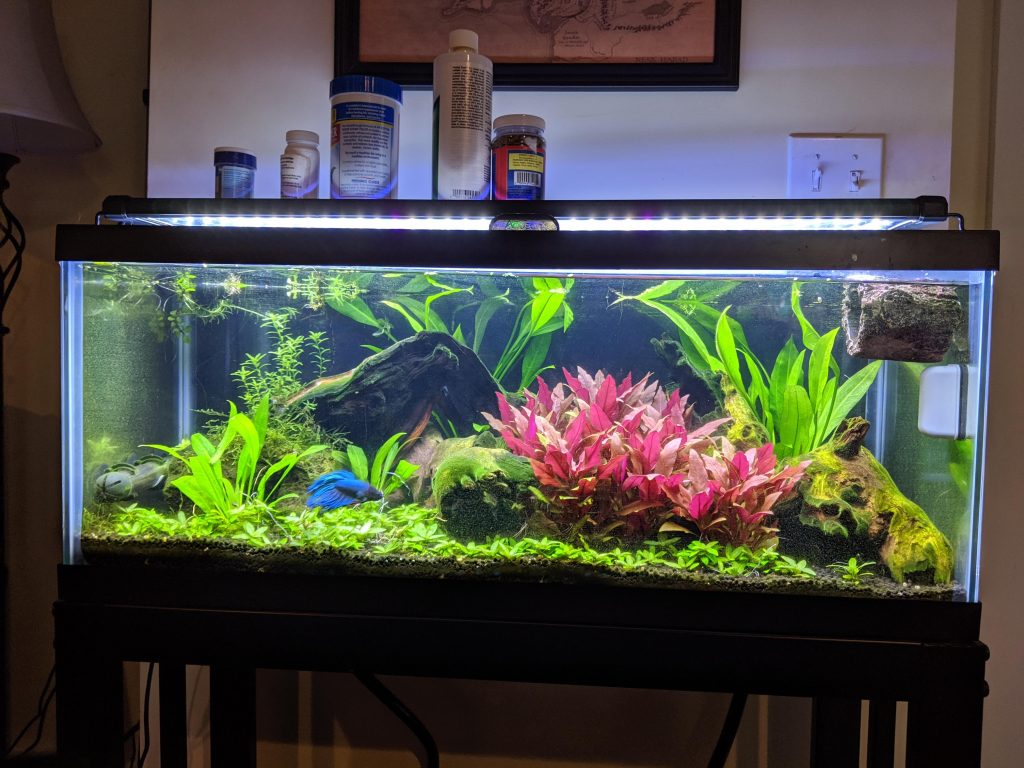Humans of Tufts Boston, 7 May 2020
Ramesh Govindan, CMDB, Fourth-year Ph.D. Student (Sixth-year M.D./Ph.D.): “Our ingenuity will pull us through”
JH: How did you get started in science and what were you doing before medical/graduate school?
RG: I always had an interest in science, although I had a brief stint in college where I wanted to be a history major (my parents were terrified). I went to college thinking that I wanted to become a biomedical engineer, because my big interests at that time were in tissue engineering. Growing synthetic organs for transplantation seemed like the coolest thing on Earth (and it might be), and I wanted to be the guy to make it a reality. As I learned more biology and physiology as part of my major coursework, as well as a lot of the humanities courses I was required to take, I also became a lot more interested in the human elements of disease and medicine. So, on top of working in a biomedical engineering lab, I started volunteering at a local hospital in a Medical Specialties ward, through a program where we would visit patients who had been, or were anticipated to be, on the ward for a long time (weeks, months). I’d spend a few days a week there for a couple of hours at a time going on walks, playing board games, and chatting with the patients. I got to know a few people pretty well, including a particularly memorable guy who had poorly-controlled schizophrenia and type I diabetes, the combination of which prevented him from being discharged on his own. By the time I hit senior year, I was pretty confused as to what I wanted to do – science or medicine. I ended up taking a gap year at the NIH in a basic science cancer research lab, where we studied the mitotic kinetochore, a protein-chromatin-microtubule complex that forms during metaphase to regulate chromosome segregation. I had two projects there, first looking for substrates of Aurora B kinase, which orchestrates numerous processes in the kinetochore. The second was to study the role of a specific histone methylation (H3.3S31me) in mitosis. Our model system was Xenopus laevis frog eggs, which are highly mitotic and are great for immunoprecipitation. I applied to MD/PhD programs during that time.

JH: Why did you choose to do an MD/PhD?
RG: People ask this of MD/PhD students a lot, and I’m not sure if it’s out of a concern that we’re all secretly insane, or whether they actually think there’s some hidden driving motivation behind each person’s choice. I’ve come to realize over the years that I really don’t have a single reason why I chose this. There are a lot of small reasons, though. The first, probably, is that I was really torn between two professions. I enjoy science and the lab, but I also like helping people directly, with my own hands. To find out at the age of 20 that there was a career path that would allow me to do both of those things, even if it was only in theory, was something I had to jump at. The second reason I chose this is maybe more nebulous – I didn’t really see the downside. It was a challenge that only a relative few chose, and it opened up potential without closing any doors. In my mind, the regret of not having tried to do both would far outweigh the regret of having tried and failed. So I applied, then I got in, and, six years later, I’m still doing it. And yes, I still have two more years of medical school, five-ish years of residency, and then one or two more years of a fellowship, but I take it one step at a time and so far I’m really enjoying it!
The third reason was that medical school is free.

JH: What drew you to microbiology for your thesis research?
RG: My interest in microbiology was not a deciding factor in any choice I’ve ever made. I’m not sure I even knew what a virus was before John Coffin and Katya Heldwein told me about them during lectures in my first year of medical school. And even then, I only wrote down enough information to pass whatever exam I had coming up. I didn’t realize that viruses would become such a big part of my life until I decided to join James Munro’s lab, and I only really joined because I liked his mentoring style and pew-pew lasers. But in the last four years, I’ve come to realize that viruses are maybe some of the coolest biological phenomena on the planet. They’re the only known replicating pathogen that is, by most definitions of “life”, dead. They’re nature’s freak killer robots. From a structural biology perspective, they are macromolecular machines perfected by evolution with only the goal of efficiency. They’re insanely amazing as research and therapeutic tools, and equally terrifying as agents of human disease. So I’m pleasantly surprised to have found virology as a PhD student, and I’m hoping to maintain a level of engagement with it as I move on my career.

JH: Obviously COVID-19 has been getting a lot of press lately. As a future doctor, what do you think? Are there any questions that aren’t being asked that should be?
RG: These are truly terrifying times. The looming specter of COVID-19 has, I think, become a defining challenge for society. As a virologist-in-training, I hope that this pandemic helps us re-evaluate the ways in which we interact with the ecosystem and each other, and, as a doctor-in-training, I hope that we find new ways to organize ourselves to respond to emerging viral pandemics. The gut-wrenching part of this is that this entire pandemic, on nearly every level, is a product of human activity. From the encroachment of humans on untouched wilderness, to our inability to deal with global poverty, to our complacency in letting free market forces dictate the makeup of our healthcare systems, simultaneously all of us and none of us are to blame for this. For instance, while the lack of infectious disease (ID) doctors in this country isn’t specifically anybody’s fault, experts have been pointing out this shortage for decades. A root of the problem is that training in ID is financially devastating – you pay ~60k a year through medical school, then slog through a low-paying internal medicine residency, and then train for 2-3 years as a fellow in ID. As an ID doc, you make less than you would have if you had just stayed in internal medicine – you take a pay cut to get more training. Your salary as a doctor is tied to how much you can bill insurance, and if you don’t do any surgeries or procedures (like an ID doc), you bill less, and you make less. It’s ridiculous. We were able to fight HIV in the ’80s and ’90s because at that time, there were many more ID doctors in the country. Today, we’re out-gunned.
So, this has been a classic conversation with Ramesh where it gets really dark once he gets going. But it’s not all bad. I am, surprisingly, still an optimist, and I really do believe that our ingenuity will pull us through. Vaccine trials are already underway, and drugs like remdesivir are showing some promise. But we need to keep up our momentum once this pandemic is over, and rethink our preparedness for viral pandemics, because SARS-CoV-2 is just one of many pathogens to come.

JH: What do you like to do outside of lab?
RG: Foremost, seeing my friends is my favorite thing to do. The friends I’ve made at Tufts have helped me in more ways than I can describe. Even if I somehow failed out of two doctorate programs, I know I’ll walk away with some of the best friendships I’ve ever had. If you’re asking after hobbies, then I think an easier question would be, ‘What doesn’t Ramesh like to do outside of lab?’ I think most people who know me know of my strange obsession with The Lord of the Rings, the greatest story ever told. More recently, I finished another fantasy series, the Wheel of Time, via audiobook on my drives out to UMass and my lonely nights in lab. I can’t recommend that series enough. During the final book (50-ish hours long) I had to periodically look up to the ceiling to let the tears drain back into my sinuses so that they wouldn’t splash into my ELISA plate. This was besides the tears I normally shed in lab. I also really enjoy gardening. I worked eighteen years a slave in my family’s yard, and then left home to realize that I actually enjoyed it the whole time, so besides heading home to work my parents’ garden I also have a small yard in Cambridge that I’ve been working on. Hand-in-hand with gardening, I’ve started keeping a freshwater fish tank with real plants that’s been pretty fun to maintain, especially in the winter when there’s no gardening to be done outside. I also enjoy cooking – I use the guides on Serious Eats and America’s Test Kitchen to try out new things when I can. It seems like during this pandemic there’s been a huge explosion of cooking on the internet, and I’m really enjoying that. I also can’t wait till summer rolls around so I can start smoking meats again. I generally think that people of our generation need more hobbies that are not Netflix, and I’m very grateful to have found hobbies that I enjoy and can share with my friends.
